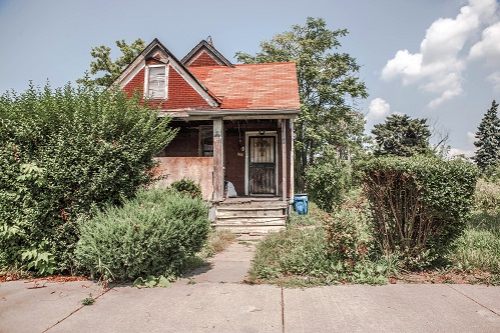- What is hurricane insurance?
- What does hurricane insurance cover?
- Does homeowners insurance cover hurricane damage?
- What are windstorm, named storm and hurricane deductibles?
- How much is hurricane insurance?
- Is hurricane insurance the same as flood insurance?
- How to buy hurricane insurance coverage
- Tips for cheaper hurricane insurance
- How can you protect your home from hurricanes?
- FAQ: Hurricane insurance
What is hurricane insurance?
There is no specific policy called “hurricane insurance.” Instead, several different types of insurance work together to protect your home in the event of damage from a hurricane: homeowners insurance, flood insurance, and windstorm insurance (in some areas).
While standard homeowners insurance policies cover damage from hurricane damage caused by wind and rain, in some locations – particularly those along the coast – a separate windstorm policy is required due to the high risk.
In addition, neither a homeowners policy nor a windstorm policy will protect you from flooding caused by a hurricane, including a storm surge. For that type of coverage, you need to purchase a flood insurance policy.
What does hurricane insurance cover?
Insurance generally covers damages related to high winds. This includes damage caused directly by the wind itself and by flying debris.
Typically, this coverage extends to your home's structure itself, as well as to personal belongings. Loss of use coverage also might reimburse you for living expenses -- including hotel and meal costs -- if you have to leave your home while it is being repaired.
It is important to remember that this coverage does not kick in until you pay the deductible. Also, your coverage will only extend up to your policy limits.
If you need to file a claim after a hurricane, you may need to file with more than one policy or company.
Does homeowners insurance cover hurricane damage?
Generally, homeowners insurance covers hurricane damage from wind and rain. However, this is not always the case.
In some parts of the country, standard homeowners policies do not cover windstorm damage. This is most common in areas of Florida, Texas and Louisiana, but there are 19 states where windstorm damage is available as a separate policy.
Of course, this varies by insurance company. Even in a hurricane-prone area, some insurance companies may include coverage. On the other hand, in some areas you don't think of as hurricane zones, you may need a separate windstorm policy. Always check your policy carefully.
Catastrophic natural disasters involving high winds have become commonplace, says Alaina Hixson, Nashville-based director of sales and operations at The Churchill Agency.
"The Southeast in particular is riddled with hurricanes, while nationwide we see high-speed windstorms and tornadoes strike at any given time," Hixson says. "No matter where you live, hurricane and wind insurance is a critical coverage you should have."
Does hurricane insurance cover flooding and water damage?
Hurricanes are tremendous water events, and they can cause flooding due to both accumulating rains that cause overland flooding and storm surges. Home insurance does not cover either of these types of damages, because home insurance doesn't cover flooding. Instead, you need to purchase a separate flood insurance policy – typically through the National Flood Insurance Program, or through a private insurer – to have such coverage.
If the wind damages your roof or debris breaks a window, and rainwater enters your home that way, home insurance will cover the damage. This type of water damage isn’t considered a flood. Floods are water that enters your home via an overland source.
Homeowners insurance also might not cover other types of water-related damage. For example, if a hurricane causes a sewer to back-up, you might not be covered for any related damage. To get such coverage, you would need to add a sewer-backup insurance endorsement to your policy.
Does renters insurance cover hurricane damage?
Yes, renters insurance typically covers hurricane damage. Like a homeowners insurance policy, renters insurance generally does not cover damages related to flooding and storm surges, although the Insurance Information Institute notes that some renters insurance policies might provide some flooding coverage.
Fortunately, renters can purchase flood coverage through the National Flood Insurance Program or a private insurer.
What are windstorm, named storm and hurricane deductibles?
The vast majority of homeowners interested in hurricane insurance live along the East Coast or Gulf Coast – and those 19 coastal states and the District of Columbia are also where you’ll find hurricane deductibles.
A hurricane deductible is not a flat fee like you normally see for other claims. If a fire damages your home, for instance, you will pay a deductible, such as $500 or $1,000, before your insurer paid for the rest of the damage.
With a hurricane deductible, insurers base the deductible on a percentage depending on the property’s risk. These percentages often range from 2% to 5% of your home’s insured value. The percentage could reach double digits in hurricane-prone coastal areas.
So, for example, if your home is insured for $200,000 and your hurricane damage deductible is 2%, you would need to pay the first $4,000 in damages before the insurance company begins to pay for the damage.
For the hurricane deductible to kick in, your area must experience a “trigger event,” such as a hurricane warning.
The state most associated with hurricanes, Florida, has a “single season” hurricane deductible. You won’t get hit with a deductible for each storm if your home is damaged in multiple storms. Once you meet the hurricane deductible, you will pay your normal home insurance deductible instead.
You can find out the deductible percentage for storm damages by checking your insurance policy declarations page.
Make sure you know how to file a claim after a hurricane so you are prepared for the process.
States that allow hurricane deductibles
According to the Insurance Information Institute, 19 states have hurricane deductibles. They are:
- Alabama
- Connecticut
- Delaware
- Florida
- Georgia
- Hawaii
- Louisiana
- Maine
- Maryland
- Massachusetts
- Mississippi
- New Jersey
- New York
- North Carolina
- Pennsylvania
- Rhode Island
- South Carolina
- Texas
- Virginia
How much is hurricane insurance?
It is important to stress that there is no such thing as “hurricane insurance.” Coverage for such events can be tied to multiple types of insurance, including:
- Homeowners insurance
- Renters insurance
- Flood insurance
- Windstorm insurance
- Sewer-backup insurance
The cost of this coverage varies greatly depending on factors such as where you live, how much coverage you need and other criteria. Thus, it is impossible to estimate how much a single homeowner or renter might pay to be fully covered in the event of a hurricane.
However, to get a rough idea of how much you might pay, the average cost of a home insurance policy is is $2,601, and flood insurance costs about $1,169. However, keep in mind that rates can be significantly higher if you live in a hurricane-prone state.
As always, your best bet for getting the right coverage at a great price is to shop around and compare quotes from several different insurers. Take a look at our list of the best hurricane insurance companies for comprehensive coverage, and then consider the best flood insurance companies to complete you coverage.
Costliest hurricanes in U.S. history
According to the Insurance Information Institute, these are the 10 most expensive hurricanes in U.S. history.
| Year | Storm | Total cost at the time (billions) | Total cost in 2024 dollars (billions) |
|---|---|---|---|
| 2005 | Hurricane Katrina | $65,000 | $104,471 |
| 2022 | Hurricane Ian | $52,500 | $57,231 |
| 2021 | Hurricane Ida | $36,000 | $41,540 |
| 2012 | Hurricane Sandy | $30,000 | $40,939 |
| 2017 | Hurricane Harvey | $30,000 | $36,450 |
| 2017 | Hurricane Irma | $29,550 | $38,571 |
| 2017 | Hurricane Maria | $29,500 | $37,743 |
| 1992 | Hurricane Andrew | $16,000 | $35,845 |
| 2008 | Hurricane Ike | $18,200 | $26,259 |
| 2024 | Hurricane Milton | $20,000 | $20,000 |
Is hurricane insurance the same as flood insurance?
Flood insurance is not specifically for hurricanes, but it's an important piece of the puzzle when it comes to insuring your home against hurricane damage. Floods caused by hurricanes are not covered by homeowners insurance. Only a flood insurance policy will cover you for that type of damage.
Does flood insurance cover hurricanes?
Yes, flood insurance covers damage caused by hurricanes. However, it specifically covers flooding, not wind or other hurricane-related damage. For full protection, you may need both flood insurance and homeowners insurance with hurricane coverage.
How to buy flood insurance
The vast majority of people buy flood insurance through the National Flood Insurance Program, which the federal government backs through the Federal Emergency Management Agency.
A licensed insurance agent writes the policy, and the government guarantees it.
Most homeowners are eligible for this coverage. But for those who are not -- or who need coverage beyond building coverage for dwellings up to $250,000 and contents coverage up to $100,000 -- private flood insurance may be an option.
Private flood insurance typically offers much higher coverage limits than policies associated with NFIP. The Insurance Information Institute notes that private insurers now use more sophisticated modeling that has helped them to underwrite insurance risk. As a result, they are more comfortable issuing policies than they were in the past.
How much is flood insurance?
The cost of flood insurance varies dramatically depending on many factors, including:
- Where your home is located -- particularly whether it is located in a place at high risk of flooding
- Whether you purchase an NFIP policy or private insurance
- How much coverage you need
As a result, you can pay anywhere from a few hundred dollars to thousands of dollars for this coverage.
Costliest floods in U.S. history
According to the Insurance Information Institute, these are the 10 most expensive floods in U.S. history. As you can see, hurricanes cause most high-cost flooding.
| Year | Event | Number of paid losses | Amount paid (in millions) | In 2024 dollars (in millions) |
|---|---|---|---|---|
| 2005 | Hurricane Katrina | 168,200 | $16,330 | $26,247 |
| 2012 | Superstorm Sandy | 132,800 | $8,967 | $12,236 |
| 2017 | Hurricane Harvey | 77,100 | $8,885 | $11,591 |
| 2022 | Hurricane Ian | 48,000 | $3,900 | $4,555 |
| 2008 | Hurricane Ike | 46,900 | $2,711 | $3,911 |
| 2016 | Louisiana storms/flooding | 27,600 | $2,522 | $3,305 |
| 2004 | Hurricane Ivan | 31,000 | $1,671 | $2,778 |
| 2001 | Tropical Storm Allison | 30,900 | $1,110 | $1,968 |
| 2011 | Hurricane Irene | 43,800 | $1,344 | $1,873 |
| 2024 | Hurricane Helene | 43,700 | $1,779 | $1,779 |
How to buy hurricane insurance coverage
Typically, your coverage from windstorm events such as hurricanes will come from your homeowners insurance policy. It is important to understand exactly what the policy does and does not cover.
For example, it is possible that your policy has a wind-damage exclusion. In hurricane-prone states, Louisiana, Texas and Florida, some standard home insurance policies won't pay for windstorm damage.
If your standard policy doesn't cover wind damage, buy windstorm insurance from your state's insurance program.
Tips for cheaper hurricane insurance
When shopping for hurricane coverage, make sure you understand whether the policy that insures you against windstorms has a hurricane deductible. If yours does, learn how hurricane deductibles work and choose the one you can afford the most.
Hurricane deductibles are typically 1% to 5% of your dwelling coverage amount. That makes them potentially more costly than the standard deductible that applies to your homeowners policy. So, choosing a policy with the right deductible can make a tremendous difference in how expensive your coverage would actually be in the event of a storm.
Shopping around for coverage is another great way to save on the cost of hurricane coverage. Each insurance company has its own formula for setting rates, so getting quotes from multiple providers has the potential to save you a lot of money.
How can you protect your home from hurricanes?
You can take steps to protect your property and increase your odds of avoiding damage should a storm land on your doorstep. They include:
- Get hurricane clips. These are steel connectors that you attach to your roof and make it harder for a hurricane to rip the roof off of your home. You probably should get a professional to do this unless you really feel confident in your DIY skills.
- Trim your trees. It'll look nice, but it'll also make them more resistant to wind. “Keeping yards free of debris, such as branches, and trimming trees that overhang the home are a good start,” Hixson says.
- Reinforce the garage door. A garage door professional can reinforce the door so it’s less likely you'll have flooding in your garage and less likely that the wind will rip off the garage door.
- Clean out your gutters. Clogged rain gutters and downspouts can lead to severe leaking and water damage on your roof and basement.
- Make sure your sump pump is in working order. If you have any doubts -- maybe it's had a few problems in recent years, or it's old -- hire a plumber and buy a new one. A faulty sump pump can lead to a flooded basement.
- Keep your roof in good shape. The roof of a home is vulnerable to damage in a storm, so regular upkeep and monitoring is important, Hixson says. “Most companies will not insure a home with a roof that is more than 20 years old,” she says. “So, if you start seeing lifting or separating shingles or granular loss, it’s time for a new roof.”
You also might want to stock up on canned goods, bottled water and other similar items that can help you ride out an extended period without power.
Sources
- MyFloridaCFO. “Florida’s Hurricane Deductible.” Accessed May 2025.
- Insurance Information Institute. “Background on: Hurricane and windstorm deductibles.” Accessed May 2025.
- Insurance Information Institute. “Facts + Statistics: Hurricanes.” Accessed May 2025.
FAQ: Hurricane insurance
How much is hurricane insurance in Florida?
Florida hurricane insurance costs can be high. If you live in Florida and you want hurricane insurance, you will need to get coverage through your homeowners policy or a separate windstorm policy. You also may need to purchase other types of insurance -- such as flood insurance and sewer-backup insurance – to be fully protected from hurricane damage.
In other words, it is very difficult to say how much Florida hurricane insurance coverage is likely to cost you. Where you live, how many insurance policies you decide to purchase and the amount of coverage you require will all impact how much you pay.
Does hurricane insurance cover damage to cars?
Your auto insurance policy will cover damage to your cars if they are damaged in a hurricane. However, it is important to remember that to get this coverage, you must carry comprehensive insurance coverage on your auto policy. Without this coverage, your cars will not be covered if a hurricane or another storm damages them.
Is there a waiting period for hurricane insurance?
Although home insurance policies go into effect immediately upon the insurance company issuing the policy, most insurance companies won't write a policy within 48 hours of an expected hurricane. So, if a storm is on the way and you aren't already covered, you may have to wait 48 hours.
With windstorm insurance, you will be covered after 15 days. If a hurricane hits your home before that time, you probably won’t be covered.
After you purchase flood insurance, you'll be covered in 30 days.
Secure all coverage well in advance of any approaching storms. In fact, you probably should lock up all of your coverage a month or more before hurricane season begins. The Atlantic hurricane season officially runs from June 1 to Nov. 30, but storms can – and have – formed before and after those dates.
Is windstorm insurance the same as hurricane insurance?
Essentially, yes, although the terms "windstorm insurance" or "named storm insurance" can have a broader meaning, applying to any named storm, like a tropical storm. Since hurricanes are both named storms and windstorms, any of these policies should cover the damage.




